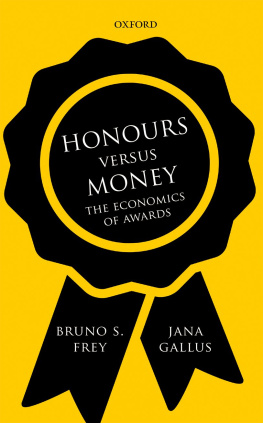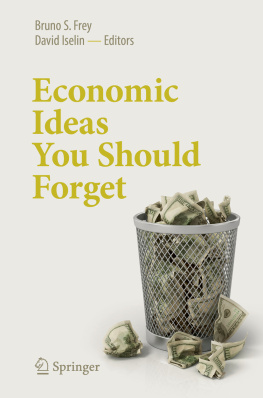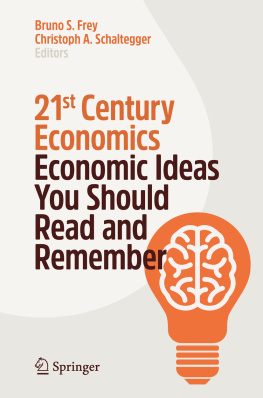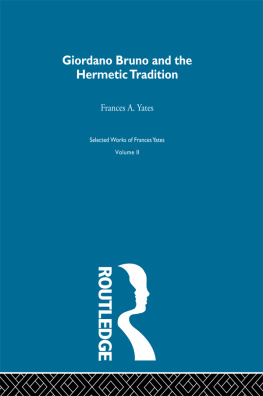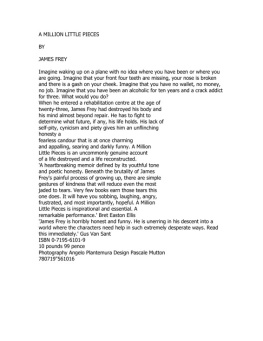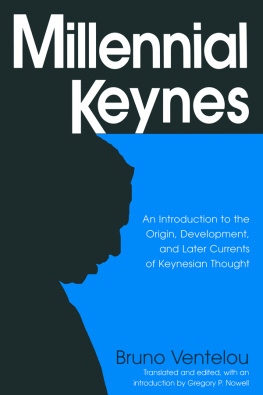Bruno S. Frey - Honours versus Money: The Economics of Awards
Here you can read online Bruno S. Frey - Honours versus Money: The Economics of Awards full text of the book (entire story) in english for free. Download pdf and epub, get meaning, cover and reviews about this ebook. year: 2017, publisher: Oxford University Press, genre: Politics. Description of the work, (preface) as well as reviews are available. Best literature library LitArk.com created for fans of good reading and offers a wide selection of genres:
Romance novel
Science fiction
Adventure
Detective
Science
History
Home and family
Prose
Art
Politics
Computer
Non-fiction
Religion
Business
Children
Humor
Choose a favorite category and find really read worthwhile books. Enjoy immersion in the world of imagination, feel the emotions of the characters or learn something new for yourself, make an fascinating discovery.
- Book:Honours versus Money: The Economics of Awards
- Author:
- Publisher:Oxford University Press
- Genre:
- Year:2017
- Rating:5 / 5
- Favourites:Add to favourites
- Your mark:
- 100
- 1
- 2
- 3
- 4
- 5
Honours versus Money: The Economics of Awards: summary, description and annotation
We offer to read an annotation, description, summary or preface (depends on what the author of the book "Honours versus Money: The Economics of Awards" wrote himself). If you haven't found the necessary information about the book — write in the comments, we will try to find it.
Honours versus Money: The Economics of Awards — read online for free the complete book (whole text) full work
Below is the text of the book, divided by pages. System saving the place of the last page read, allows you to conveniently read the book "Honours versus Money: The Economics of Awards" online for free, without having to search again every time where you left off. Put a bookmark, and you can go to the page where you finished reading at any time.
Font size:
Interval:
Bookmark:


Great Clarendon Street, Oxford, OX2 6DP, United Kingdom
Oxford University Press is a department of the University of Oxford. It furthers the Universitys objective of excellence in research, scholarship, and education by publishing worldwide. Oxford is a registered trade mark of Oxford University Press in the UK and in certain other countries
Bruno Frey and Jana Gallus 2017
The moral rights of the authors have been asserted
First Edition published in 2017
Impression: 1
All rights reserved. No part of this publication may be reproduced, stored in a retrieval system, or transmitted, in any form or by any means, without the prior permission in writing of Oxford University Press, or as expressly permitted by law, by licence or under terms agreed with the appropriate reprographics rights organization. Enquiries concerning reproduction outside the scope of the above should be sent to the Rights Department, Oxford University Press, at the address above
You must not circulate this work in any other form and you must impose this same condition on any acquirer
Published in the United States of America by Oxford University Press 198 Madison Avenue, New York, NY 10016, United States of America
British Library Cataloguing in Publication Data
Data available
Library of Congress Control Number: 2017932969
ISBN 9780198798507
ebook ISBN 9780192519504
Printed in Great Britain by Clays Ltd, St Ives plc
Links to third party websites are provided by Oxford in good faith and for information only. Oxford disclaims any responsibility for the materials contained in any third party website referenced in this work.
People are not only motivated by money. The desire to be recognized is a fundamental trait of human beings. Awards are well suited to fulfil this desire. For time immemorial, an innumerable variety of awards have existed in all countries and spheres of life.
Monarchs as well as presidents of republican countries bequeath orders and medals, such as the Order of the Garter given by the British Queen or the Presidential Medal of Freedom given by the American President. In the arts, the Man Booker Prize is given to writers, the Pritzker Prize to architects, the Oscars to film stars, the Grammy Awards to personalities in the music industry, and the Pulitzer Prize to journalists. The military abundantly use honours to remunerate and recognize soldiers and officers, including deceased ones. The Victoria Cross is a particularly important example, as it ranks on top of the honours system in the UK.
Awards are also most numerous in two areas where they would not necessarily be expected. In academia, where all that counts is expected to be the pursuit of knowledge, there are a great many awards. They range from honorary doctorates to the Nobel Prizes. Likewise, in business, money is taken to rule supreme. But in fact firms and other organizations hand out many different awards. The Employee of the Month or Manager of the Year are just two particularly well-known examples, but there are numerous other awards in the corporate sector.
In contrast to this obviously great importance stands the neglect of awards in economic science. The emphasis has for a long time been lying almost solely on monetary incentives, such as the various forms of pay-for-performance and bonuses. This may be attributed to the characteristics of monetary incentives, which are simple to administer, fungible for their recipients, and in line with the dominant commercialization of our contemporary societies.
But why are there so many awards? There is a straightforward answer. What human beings strongly strive for are honour, recognition, and attention. These desires are particularly well met by awards. When bequeathed, the recipients are explicitly and publicly lauded for their extraordinary achievements.
Our book analyses honours from an economic perspective, i.e. using economic theory and empirical methods. As far as we are aware, this is the first book offering a general analysis in this vein. It differs fundamentally from the science of orders and decoration, called phaleristics, as well as from historical and sociological treatises of the topic. We discuss the use of awards in different areas of society and explore the differences between awards and monetary compensation as well as other material and immaterial benefits. We integrate the economic analysis of awards into economic and business theory, including signalling and strategic management theory. Based on our own research, in which we empirically analyse the effects of honours on productivity in academia and the voluntary sector, we conclude that awards have great potential to significantly raise peoples motivation and performance. Finally, we explore some of the areas and tasks where awards are particularly well suited, and where they may be superior to other motivators.
Our book intends to make a contribution to several literatures. After each chapter, we provide a brief discussion of the literature related to the specific topics covered.
This book builds on a series of articles, partly written together with Susanne Neckermann, Reto Cueni, Benno Torgler, and Ho Fai Chan. Parts of the work have previously been presented at universities and other scholarly institutions in Switzerland, Germany, Austria, France, Denmark, the Netherlands, Spain, the United Kingdom, and the United States, as well as at numerous scholarly conferences in various countries.
We are grateful for comments received on several occasions by so many scholars that it is impossible to name them all. For the specific case of state orders, we had the unique opportunity to interview the late Professor Roman Herzog, former President of the Federal Republic of Germany, for which we are most grateful. We also greatly appreciate the insights provided by the Nobel Prize winners in Economics, Sir James Mirrlees and Joseph Stiglitz.
We moreover want to explicitly mention Bruce Ackerman, John Armour, Stephan Bechtold, Christine Benesch, Tim Besley, Trine Bille, Iris Bohnet, Bob Cooter, Reto Cueni, Giuseppe Dari-Mattiacci, Reiner Eichenberger, Christoph Engel, Lars Feld, Gerd Folkers, Robert Frank, Ren Frey, Jonas Friedrich, Victor Ginsburgh, Fernando Gomez, Andrew Guzman, Henry Hansmann, Dirk Helbing, Jrg Helbling, Grard Hertig, Gebhard Kirchgssner, Kai Konrad, Lewis Kornhauser, Siegwart Lindenberg, Simon Lchinger, Karl Ulrich Mayer, Stephan Meier, Felix Oberholzer-Gee, Karl-Dieter Opp, the late Elinor Ostrom, Andrew Oswald, Katharina Pistor, Susan Rose-Ackerman, Christoph Schaltegger, Friedrich Schneider, Hans-Werner Sinn, Lasse Steiner, Alois Stutzer, and Hannelore Weck-Hannemann. In particular, we thank Evelyn Holderegger and Jonas Friedrich for carefully checking the manuscript, and Margit Osterloh and Gregor Martynus for their continuous and wonderful psychic and practical support.
Font size:
Interval:
Bookmark:
Similar books «Honours versus Money: The Economics of Awards»
Look at similar books to Honours versus Money: The Economics of Awards. We have selected literature similar in name and meaning in the hope of providing readers with more options to find new, interesting, not yet read works.
Discussion, reviews of the book Honours versus Money: The Economics of Awards and just readers' own opinions. Leave your comments, write what you think about the work, its meaning or the main characters. Specify what exactly you liked and what you didn't like, and why you think so.

